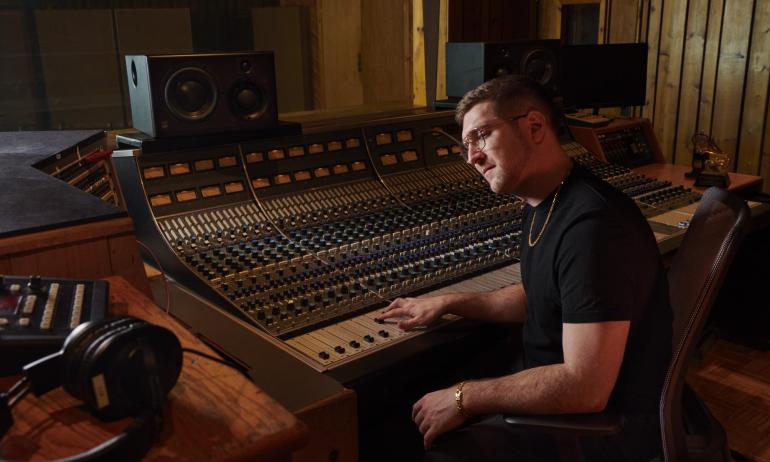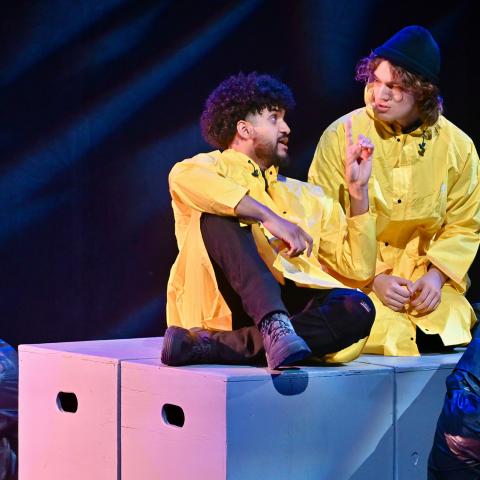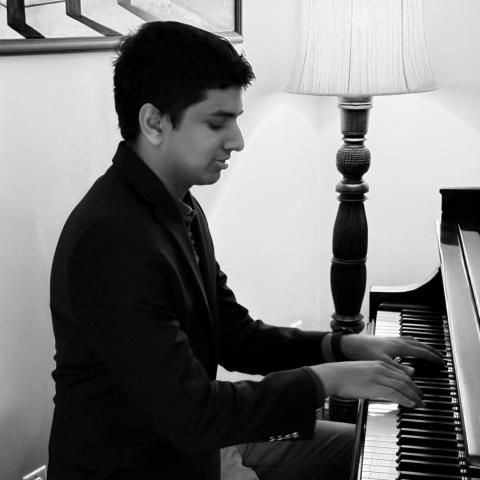Not Your Grandfather's New Music
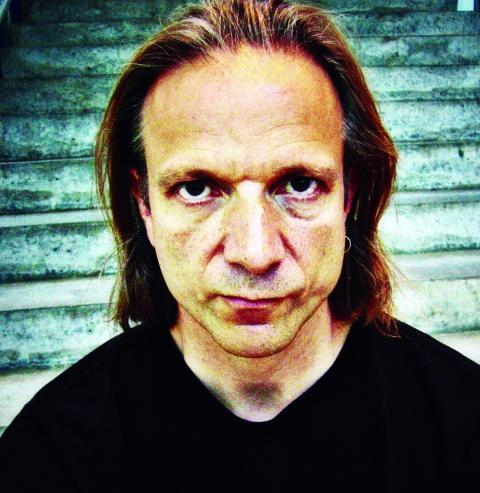
Michael Gandolfi '76
P. Friedland
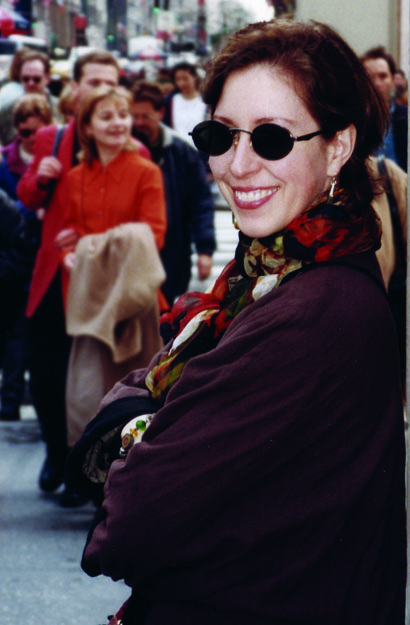
Susan Botti '86
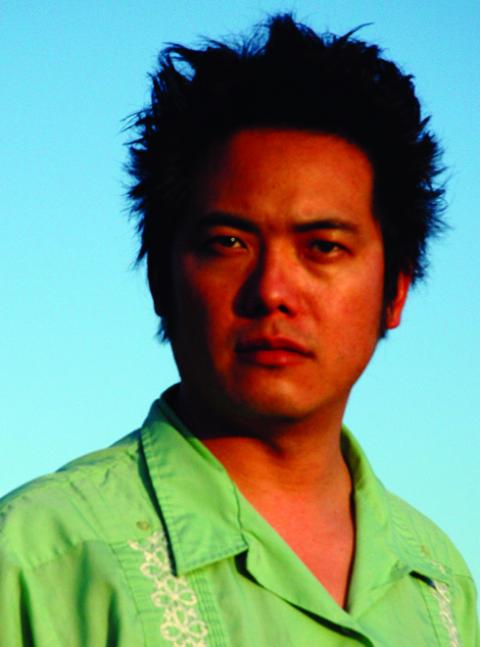
Ken Ueno '94

Glen Roger Davis '73
Students of music history know that Igor Stravinsky's score to the ballet The Rite of Spring elicited loud boos and worse from the audience at its Paris premiere in 1913. That controversy heralded the birth of 20th-century music and its uninhibited exploration of harmony, melody, rhythm, and instrumentation. When Bob Dylan got booed off the stage at the 1965 Newport Folk Festival for "going electric" with the Paul Butterfield Blues Band, the event could hardly be equated with the Stravinsky premiere at Théatre des Champs-Elysées a half-century earlier, but Dylan's experience nonetheless has its place along the continuum of the development of 20th-century music. As music of the 21st-century flowers, today's new-music composers have embraced the rhythms and dissonances that entered the vocabulary on the heels of Stravinsky's watershed work. And today, they have also incorporated into their compositions contemporary musical styles, such as electric, acoustic, and electronic jazz, popular, and ethnic music.
Music of Our Place
A case in point is the music of composer Michael Gandolfi '76, who came to Berklee to improve his skills as a rock and jazz guitarist. But his path soon diverged, and he was drawn to composing contemporary classical music. He ultimately earned undergraduate and graduate degrees from New England Conservatory of Music and embarked on an extraordinary career as a composer.
Early on he won fellowships, grants, and prizes and had his works performed by such respected organizations as Speculum Musicae, the Orpheus Chamber Orchestra, the Boston Symphony Orchestra, and others. His piece Points of Departure was recorded for the Deutsche Grammophon label. During an interview for a profile in the fall 2003 issue of Berklee today, Gandolfi discussed his conscious decision to let all the influences that originally drew him to music emerge rather than be sublimated to the highly chromatic style of writing that initially drew some conductors to his early work (see "Michael Gandolfi '76: Point of Departure").
The approach has won Gandolfi a steady stream of commissions and a following in the classical world. His latest success is a large and continually expanding suite titled The Garden of Cosmic Speculation. Organized in three macro sections or standalone suites, the 11-movement piece, was recorded by conductor Robert Spano and the Atlanta Symphony Orchestra for Telarc International. It was nominated for a 2008 Grammy Award and has become a hit among numerous classical orchestras. The piece takes its name from a spectacular 30-acre garden in Scotland created by architectural designer Charles Jencks and his wife, Maggie Keswick. Through ambitious and intricate combinations of artful landscape designs and manmade structures, Jencks's garden portrays aspects of the universe and the scientific progress of man through the ages, from the big bang to string theory.
After being captivated by images in a book about the garden, Gandolfi wrote his impressions of the garden's features and underlying concept in music to fulfill a Tanglewood commission from Spano for a 12-minute orchestral work. The first version was a four-movement piece titled Impressions from "The Garden of Cosmic Speculation." "I was struck by how interesting everything about the garden was to me," Gandolfi says. "I've had a long-standing interest in physics, cosmology, astronomy, architecture, and so forth. I could see that Charles Jencks had the same interests, so I felt this would be a nice match. The only thing that was missing was music."
Jencks continually adds to his garden, and since the 2004 Tanglewood premiere, Gandolfi has also augmented his work with movements titled after various sections of the garden. The running time of the entire piece is more than an hour. Its structure allows conductors to perform the work in part or as a whole. "I put the piece out there, saying any number of movements can be selected and put in any order for a performance," he says. "And that's been happening. For a piece with such a short life - as pieces in the orchestra world go - it's had a good number of performances." The work has been performed in Scotland in coordination with an "open day" at the garden and, last year, had nearly a dozen performances in the United States.
Gandolfi has produced a major work that is sophisticated and instantly engaging. Its modernity is successfully balanced by Gandolfi's personal take on tonality and rhythm, as well as his masterful orchestration and jazz-informed approach to harmony.
The composer cites at least two movements that reveal his pop and jazz roots. "'The Willow Twist' is one," he says. "It's very brassy and grooves, almost sounding like a big-band piece in the scoring. As well, 'Symmetry Break Terrace/Black Hole Terrace' has elements of jazz, in that there's a walking bass line that emerges. At times [the movement] sounds like two jazz bands playing in different tempi.
"I've been listening to a lot of music by Russian composers lately. I'm almost envious of the fact that there's a tradition of indigenous music that resonates in the way those composers deal with harmony - it's clearly Russian. I love it so much, but I feel like I can't fully go for it, because I'd just be taking from a tradition which isn't really mine. This makes me think more and more about my own tradition - and what is it? It's jazz: an original combination of American and African music. It's a music of our place. In the same way that I identify the sound of these Russian composers, I hope people are listening to what my American colleagues and I are doing and recognize it as an American sound that connects to jazz."
Willing to Risk Everything
The works of composer and soprano Susan Botti '86 have earned her a Guggenheim Fellowship; the Frederick A. Juilliard/Walter Damrosch Rome Prize; and commissions from the Orpheus Chamber Orchestra, the Cleveland Orchestra, the New York Philharmonic, professional chamber groups, and numerous university ensembles. Botti came to contemporary classical music after taking private classical voice studies in Cleveland and a stint in experimental theater in New York. Jazz vocal studies in New York with Dee Kohanna '79 pointed her toward Berklee, where she got involved in the gospel choir, studied improvisation and percussion, and was encouraged to compose in classes with former faculty member Bob Freeman. Following her graduation from Berklee, she earned her master's degree in composition from Manhattan School of Music, where she is now a faculty member.
Botti has deep reverence for cabaret, jazz, pop, and classical music as well as a conscious disregard for stylistic boundaries. She earned her tuition for graduate school by singing the "True Colors" jingle for Kodak that ran throughout the 1988 Olympics. She sang on other jingles as well as the Mission to Marsmovie soundtrack. "I tell my students not to be closed off to opportunities," she says. "They can learn from so many different musical experiences."
If she had wanted to pursue a different path, Botti could have a career exclusively as a classical soprano soloist. Fellow composer Tan Dun, whom she met as a grad student, tapped her to sing a role he created for her in his opera Marco Polo, which she performed throughout Europe and Asia. But Botti has found her niche in the new-music field as a composer and the soprano soloist in her own works. Maestro Kurt Masur commissioned her piece EchoTempo for soprano, percussion, and orchestra and premiered the work with the New York Philharmonic Orchestra. And conductor Michael Haithcock and the University of Michigan wind ensemble and chorus at Carnegie Hall premiered Botti's Cosmosis for wind ensemble, soprano soloist, and women's voices. Both EchoTempo and Cosmosis have received multiple performances by ensembles in the United States and Europe. Since the premiere of her operatic soliloquyTelaio: Desdemona in 1995, Botti has sung the lead role in numerous cities, and in April, she will reprise the role with the National Symphony Orchestra of Taiwan.
"It is a magical thing to have your music played," Botti says. "But for me, I am so much more relaxed if I'm up there performing because I'm doing something. If you're the composer just sitting in the audience, you aren't in the middle of things. I'm putting myself on the line just as the players in the orchestra are. When I'm a part of it with everyone else, something powerful happens with the musicians. There's also a bonding I feel with my own music because, in effect, I am saying, 'I'm going to risk everything here.' I really like the element of risk taking in performance."
While her music rarely overtly reveals her pop and jazz roots, Botti sometimes makes her influences obvious. Of Impetuosity, a piece for orchestra premiered by the Cleveland Orchestra that has a "Monkish" - as in Thelonious - title, Botti says, "It was an exploration of momentum and a tribute to the freedom of jazz artists like John Coltrane, Thelonious Monk, and Gonzalo Rubalcaba. There is a certain energy in their music that I wanted to manifest."
Botti is currently preparing for the premiere of Gates of Silence, a work commissioned by the Blakemore Trio. In addition to movements for violin and piano and for violin, cello, and piano, a third movement adds Botti's soprano. In February the work will be performed in Nashville and, in March, at New York's Merkin Concert Hall.
Botti lives with her husband, Latin-jazz drummer and composer Roland Vazquez, and their two children in a town near the Hudson River 100 miles north of New York City. A few times a week, she goes to the city to teach composition at Manhattan School of Music. She instructs her young charges to remain open to all styles of music. "I tell my students that the songs of Stevie Wonder are on a par with the lieder of Franz Schubert and Hugo Wolf. The harmonies, the lyrics, and the honesty of Stevie's music make it so."
Person-Specific Music
All the composers interviewed for this article have vivid musical imaginations and their music pushes the envelope. But with his use of extended techniques for instruments and voice, ethnic musical elements and instrumentation, and computer analysis of frequencies to shape his orchestration, Ken Ueno '94 reaches even further afield.
Born to Japanese parents and raised in California, Ueno has deep reverence for his Japanese heritage and culture, but grew up thoroughly American. During his youth, he didn't envision a career as a successful new-music composer. "My life plan was to go to West Point, become a general, and then return to California and become a senator," Ueno reveals. "I was really interested in politics and thought that would be my career. I planned for it, worked hard, and got into West Point." But everything changed during the summer after his freshman year, when Ueno suffered a serious injury that necessitated his departure from West Point to recover for a year and half.
"Before I went off to college, I had discovered Jimi Hendrix," Ueno recalls. "So during my year-and-a-half convalescence, all I did was go to physical therapy and play guitar eight, nine hours a day. I really learned to play during that time. As I was planning what I was going to do with the rest of my life, it dawned on me that maybe I should pursue music." Ueno started playing in bands and writing songs and ultimately entered Berklee in the spring of 1991.
Once there, he got heavily involved in jazz and took Herb Pomeroy's legendary Line Writing and Duke Ellington classes, which Ueno calls his "best pedagogical experience in music." Professor John Bavicchi introduced him to the string quartets of Béla Bartók. "When I first heard Bartók's fourth string quartet, it was a kind of second [musical] conversion experience after Jimi Hendrix. This was visceral, powerful music, and I was instantaneously inspired by it. But I also felt that there was something I didn't understand about it. The intellectual part is what got me interested in classical composition."
After graduating from Berklee, Ueno earned his Ph.D. in composition from Harvard University. His music has since won him the Prix de Rome, and last fall, he received the Berthold Leibinger Berlin Prize from the American Academy in Berlin. Now Ueno is a faculty member at the University of California, Berkeley. He has received commissions to write for virtuosic classical instrumentalists, including violist Kim Kashkashian, percussionist Evelyn Glennie, the Hilliard Ensemble, clarinetist Laura Carmichael, and many more. A work commissioned from Ueno yields a piece tailored uniquely to the sound, technique, and abilities of the work's dedicatee.
"I take into consideration the specific skills of the performers and analyze them using computer technology to develop structures, form, and sounds from the analysis. When I write for myself and orchestra, I do overtone singing and multiphonics, then analyze the frequencies and create an acoustic resynthesis of some of my sounds. I think in frequencies even when writing for traditional instruments."
Often the result is music that can be performed only by the person for whom it was written. "When I saw Jeff Beck, I thought there's no other guitarist who could do what he does. But we don't think a lot about that in classical music. If it's a Beethoven piano sonata, anybody with the technical skills should be able to play it. Listening to Hendrix, Coltrane, or Bob Dylan, the meaning of what I perceive seems so intrinsically linked to the persona and aura of the person that it's hard for me to divorce musical materials from that person."
Historically, classical composers have written music with the hope that it will be performed by various artists and have lasting appeal, but Ueno feels differently about composition. "In this postcapitalist society, there's so much music. Even the pop music I like to listen to sometimes seems so ubiquitous. I want to write music that somehow privileges the people who want to go see the live performance. . . . I'm not out there for ubiquity but for people who are more committed. When the audience hears the music, they realize it's something that they can't get anywhere else."
A Return on Investment
Berklee alumnus and former faculty member Glen Roger Davis '79 found that selling part of his vintage instrument collection to fund the recording of his 39-minute Piano Concerto in F paid off by boosting his profile as a composer. A reviewer in the prestigious classical-music magazine Fanfare hailed the work as an "audacious and seamless blend of classical, jazz, and rock," averring that Davis had succeeded in his work "through the smooth fusion of these idioms" where others have fallen short.
In the work's first two movements, Davis's use of nonclassical elements is quite subtle, but in the third, "Dream Dance Dali," the shape and phrasing of the opening flute melody, the harmonies, and the groove created by the percussion section give an undisguised nod to jazz and African music. The Concerto took Davis three years to compose. In its second movement, "The Ascension of Aunt Clarabelle," he compassionately treats the tragic death of a beloved relative, a life-altering experience for him.
Davis became convinced that simply premiering his music at academic concerts was not fruitful and that making a great recording that could get airplay and reviews was the ticket. He took the adventurous step of selling some of the sought-after electric guitars and basses he had collected since his rock-band days during the 1960s and 70s. Additional funding from Miami University in Oxford, Ohio, where Davis is a faculty member, enabled him to reach the $65,000 needed to enlist piano virtuoso Michael Chertok; conductor Ricardo Averbach; and the Sofia Philharmonic Orchestra and Chorus for the project. The Vienna Modern Masters label released the disc in 2006. Though risky, the move was critical for Davis to develop a wider audience.
"You reach a few people in a concert, but a CD can reach thousands or tens of thousands," Davis says. "I am still driven by that thinking and am working on three new recordings right now. In a way, I write concert music that is not played in concerts. After I record it, I go on to the next piece. It's sort of like when the Beatles stopped performing and just became a recording band." Modesty aside, it should be noted that the Sofia Philharmonic gave Davis's Concerto its concert premiere in 2008 in Bulgaria, and performances of several of his other orchestral compositions are in the works.
Reviews of the Concerto and/or profiles on Davis in Fanfare, American Record Guide, and Musical Horizons, opened doors for new contacts and commissions and offered validation for Davis as a composer outside academia. "The recordings I've made have gotten a lot of other people interested in my music," he says. "I recently got a message from James Strauss - one of the world's top concert flutists - that he's going to premiere the flute concerto I wrote for him." As well, the first chair cellist of the Philadelphia Orchestra is working on the logistics of scheduling a premiere of Davis's Prayers of the Same Heart, and fellow Miami University faculty member Jaime Morales-Matos has commissioned a trombone concerto.
Davis says that he speaks classical music with a rock dialect. "I've been working at music since I was 15, when I wanted to make music like the Beatles. That changed over time as I heard the music of [Béla] Bartók, Stravinsky, Beethoven, and others. I've never given up my admiration for the Beatles or Miles Davis. I still listen to and learn from their music.
"There are so many young composers today who are multi-dialectic. They grew up listening to rock, jazz, or world music and bluegrass as well as symphonic music. They don't see these different styles as being mutually exclusive. You may hear all of those styles in a single piece. I think we will hear some wonderful combinations of musical styles from musicians with this type of background who are writing concert music."
While writing contemporary concert works doesn't generate huge revenue streams, Davis reminds that historically, artists - musical and otherwise - have not typically been well rewarded by society. "But I think they have been very important members of the culture," he says. "They remind everyone that there is more to humanity than the everyday concerns."

